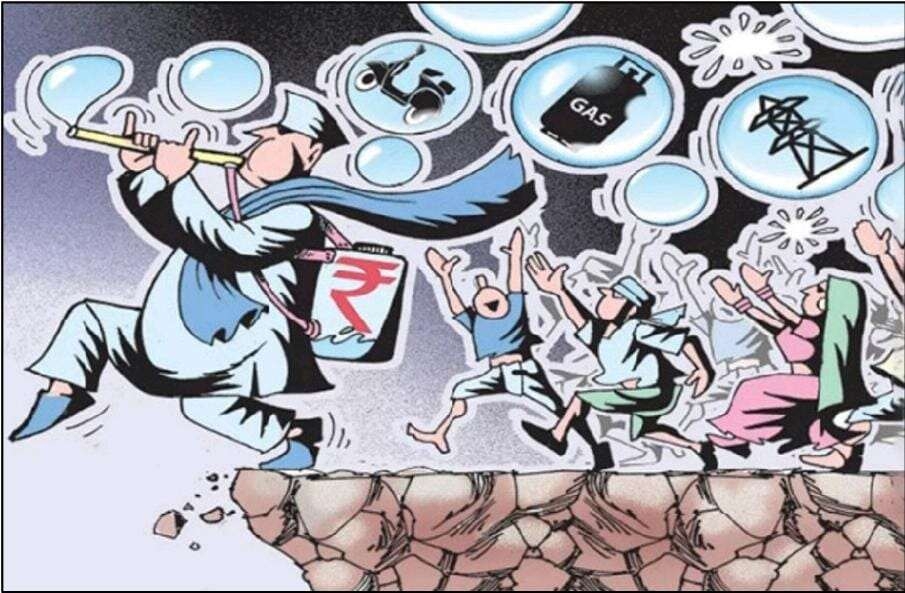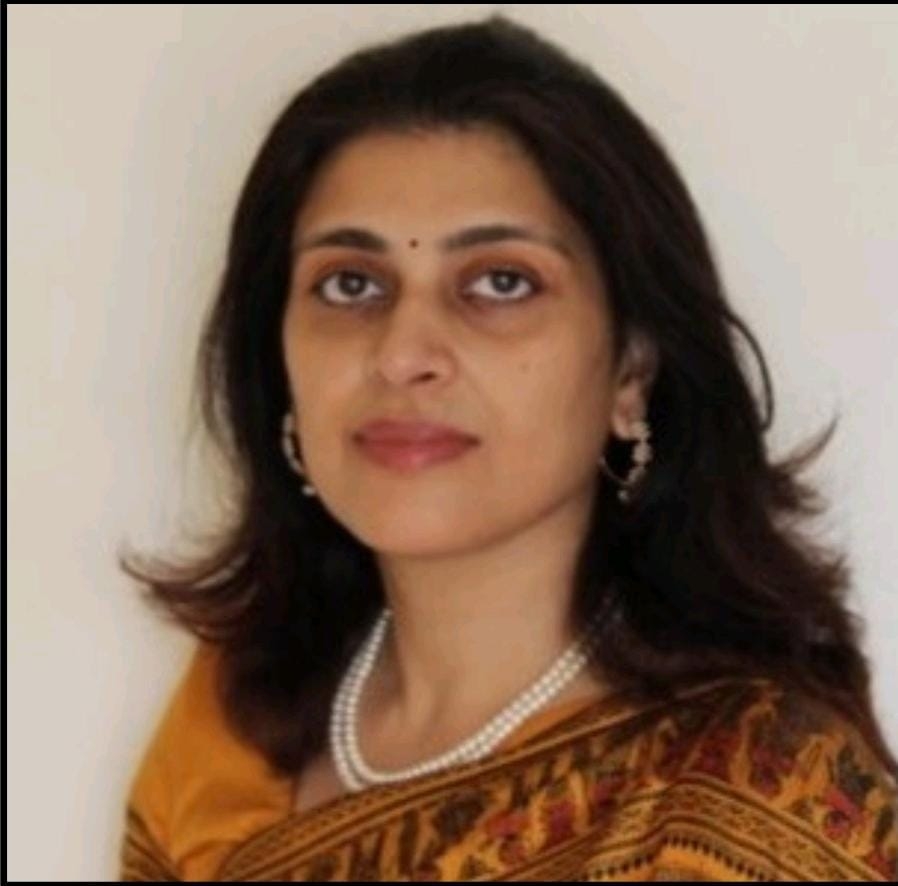Delhi Water Crisis : As you vote, so shall you be governed
The visuals of people queuing up for water during an unprecedented heat wave are heart wrenching. Delhi also had one of the worst mortality rates in Covid; despite the State Government’s claims of having revolutionized healthcare. But the blame does not rest entirely on the State Government. The blame equally rests on the populace who voted for promises of free bijli and pani, vs. sensible, responsible governance.

We have all heard the popular idiom – as you sow, so shall you reap. It simply means that as the action is, so is the result. Newton’s third law of motion also says that every action has an equal and opposite reaction, meaning that as doers of action, we should also be prepared to be the recipients of the reaction.
Never has this idiom been proved more apt as it has been in recent times. The true power in a democracy lies with the voter. It is indeed the voter, who decides the quality of his or her life and the community that he or she belongs to. Let us look at a few headlines of the past few weeks.
Delhi, the capital of India; the seat of power; the city which made everyone its own– whether it was the Islamic invaders, the British colonists, the Hindu refugees fleeing religious persecution in the aftermath of the partition; home of one of India’s best Universities (Delhi University). Today, Delhi is reeling under a severe water shortage in the summer of 2024; it was one of the worst affected in the Covid pandemic period and has the dubious distinction of being a city where the teaching and non-teaching staff of multiple State Government Funded Colleges have not received salaries in full since last few years… this, despite the State Government making tall claims of an education revolution!
The visuals of people queuing up for water during an unprecedented heat wave are heart wrenching. Delhi also had one of the worst mortality rates in Covid; despite the State Government’s claims of having revolutionized healthcare. But the blame does not rest entirely on the State Government. The blame equally rests on the populace who voted for promises of free bijli and pani, vs. sensible, responsible governance.
When an educated, literate populace becomes greedy and votes in the Assembly Elections to get a government that promises them freebies – are they not setting themselves up for future problems? In the lure of free electricity, free bus rides et al, if the voter does not pause to think about the monetary burden on the exchequer, then isn’t it obvious that she is knowingly compromising on infrastructure improvement, investment in healthcare and education to simply reduce her monthly electricity bill? The voter is consciously deciding to live with bad governance, fewer hospitals, poor law, and order…all to get her free bus rides.
In a diverse country like India, governance needs skill, experience, and the ability to form relationships across party lines. Antagonism, anarchist behaviour and dharnas make for good video bytes and possibly short-term TRP gains. Governance is a different matter – it is done when cameras are off, when dreary files must be seen to and when personal egos must be set aside to ensure that the right decisions are taken, stakeholders are brought on board and good execution done.
The Government’s job is to govern – not to remain in perpetual crib and cry mode or to hand out doles like ‘rajas’ of yore. But if the Delhi citizens lack the ability to understand this, then they should not make a hue and cry about water shortage. Then, if there is a water shortage in summers, or an ICU beds shortage in Covid – why crib? Isn’t the voter herself to blame?
After all, they are the ones who chose to elect in a government lured by the idea of freebies.
When adult women, presumably sensible enough to distinguish between truth and falsehood, knowingly reduce themselves to beggary - ‘selling’ their votes for a shady promise made of guaranteed monthly dole (cannot use the word income here – income by association comes with services rendered or work done); when they have no qualms in admitting that they are beggars who will exercise the most powerful right they have – the right to choose their representative – for dole… then it is only fair justice that they stand in lines in the searing heat to redeem their ‘khatakhat guarantee cards’ for money and get disappointed at the end of the day.
Did they really think that money would flow into their accounts, without them having to do any work for it? The first lesson taught in any economics class is that ‘there is no free lunch’. This so-called largesse comes from the taxpayers hard earned money and when it is diverted by political parties to hand out as pre-election bribes, it is nothing but systemic cheating. And if the adult voter is stupid enough to fall for this scam, then maybe she deserved to be fooled.
Furthermore, there was a discussion among spokespersons of different political parties on Modi 3.0 in an evening program on a leading news channel. The program was telecast during prime time, when family viewing is the norm. The anchor asked a simple question to the participants– why does the INDI Alliance not accept that it has lost the 2024 General Elections and allow the nation to move ahead?
A senior spokesperson for one of the leading regional parties derisively likened Modi 3.0 to (and I quote) “agar Dulhan ki teesri shaadi ho, toh jashan nahin manaya jaata hai” (if the bride is getting married for the third time, then there is no need for rejoicing). This totally uncalled for, insensitive and callous remark was made on national television, with no qualms whatsoever. The anchor, rightly, took umbrage at the disparaging remarks on the women and asked the spokesperson to apologize. Not only did the apology not come, but further support of this discriminatory, misogynist remark was made; all of which were further derogatory to women.
This is the quality of people we elect & then we wonder, why are crimes against women still happening? Sadder even to note that women themselves chose such abysmal leaders, simply because they were greedy for a few thousand rupees.
The Delhi Govt funds 28 colleges – which include 12 colleges that are fully funded; 16 colleges are only partially funded (5%) by the Delhi Govt. The teaching & non-teaching staff of the 12 fully funded colleges have been severely impacted due to nonpayment / irregular payment of salaries since the last four years. It is alleged that since the State Govt has been unable to fulfil its pre poll promise of opening 20 new colleges, with 85% Delhi quota (in line with its populist policies), it is trying to directly and indirectly intimidate the 12 Delhi University (DU) colleges to bring them under State control.
Article by
Aditi Hingu
Aditi has more than two decades of experience in the corporate world. She works as a strategic marketing consultant and has done projects across innovation, category & brand development, communication, media and research for Indian and Multinational companies. She has also significant experience in coaching and training across diverse functions.


